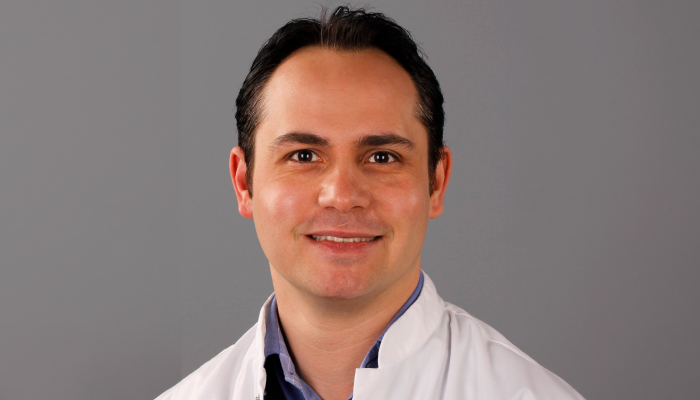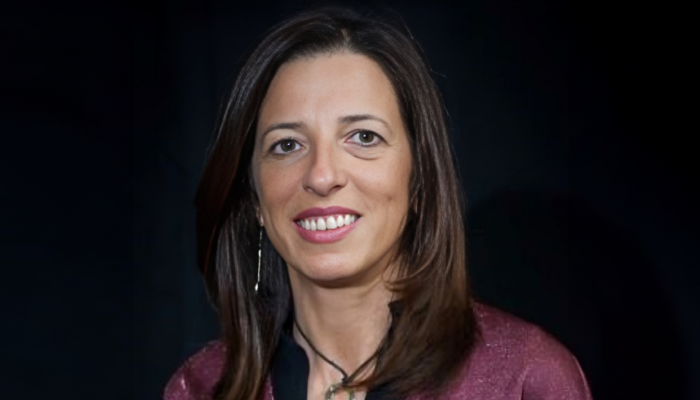
Mor Dickman
BOSS – Building Our Sustainable, Inclusive Society – is a new European Society of Cataract & Refractive Surgeons (ESCRS) initiative, the brainchild of ESCRS President, Filomena Ribeiro. It serves to foster an environment “where every ESCRS member feels that they have a voice.” The BOSS initiative will be a major feature of the upcoming ESCRS Congress in Barcelona (6-10 September).
To discover more about the initiative and how it will feature in ESCRS’s activities going forward, we spoke with Ribeiro and BOSS Working Group Chair, Mor Dickman.
What is behind the ESCRS BOSS initiative?
Mor Dickman (MD): ESCRS has grown to be one of the largest, if not the largest, community for ophthalmologists worldwide. We’re still growing and we’re very happy about it, but it means that our organization is also becoming much more diverse. So, we want to make sure that we are catering to all our members.
For society members, ESCRS is a place where we grew professionally, where we developed our network and friendships, and we want everybody to feel that sense of belonging. But it’s also an opportunity. If we respect everybody’s talents, give everybody a chance to be who they are, and create an environment where people can safely take risks, then we will do better as an organization.
What kind of BOSS activities can we expect at the upcoming ESCRS event and beyond?
MD: We see this as a multi-year program, but this year we will be laying the groundwork, so the upcoming congress will be focused on instructional courses. For example, we’ll be looking at the area of implicit bias. We began this work at the ESCRS Winter Meeting in Frankfurt, Germany, earlier this year. We featured an implicit bias workshop by Amy Johnson from Project Implicit (which offers an online test where everyone can test their own biases). We all have biases, but this is about recognizing them and creating an environment where we can discuss it different biases and hopefully resolve them.
We offered the implicit bias workshop to the ECRS leadership and although there was a bit of pushback at first, everybody got a lot out of it in the end. In fact, the people that were most resistant to it initially were the ones who ended up really enjoying it, taking photos and so forth! So now we’re offering this workshop to all the ESCRS delegates in September.
Australia’s Tanya Trinh will be giving a workshop focused on unconscious gender bias. It’s really important for both men and women to join this session to learn how we can be allies if there’s a meeting, for example, and someone is not being allowed to speak up or voice their opinion. What do we do in that situation?
Another thing we’re introducing at the Congress are speed mentoring sessions. These are interactive sessions where mentees have the opportunity to engage with experienced mentors in short, focused conversations. Mentees will spend 10 minutes per mentor and then move to the next table. We hope that these conversations will lead to a connection, a mentor, a friendship, or a new perspective.
Many professions and societies have introduced diversity, equity, and inclusion (DEI) policies in the last few years. Is ophthalmology lagging behind?
MD: Our working group has put together an overview of the literature on this subject because, as a scientific society, we want to see what the evidence is. This is something we will be discussing in our symposia in September. What we have found is that all the papers on diversity and inclusion are from the US or Canada. There is very little work being done in Europe. So, we want to facilitate research projects to help us understand how big the problem is – for our patients, for our members, and for our workforce.
What we know from the US is that ophthalmology is only ahead of orthopedics in terms of the diversity of its members; that is, ophthalmology is the second worst medical specialty for diversity in the US. We know that female ophthalmologists earn, on average, $50,000 per year less than their male counterparts, even when they do the same job, and even when you correct for loss of income related to family issues. We want to raise awareness around these issues, and plan a course to remedy them. We can’t repair them ourselves, but we can give our members the tools to understand and address them. And of course, we need to understand what is happening in Europe.
Filomena Ribeiro (FB): The European Union is trying to promote the concept of inclusivity across all industries. But so far this hasn’t spread to the medical societies in Europe. So ESCRS is becoming a pioneer in this area. It is something that the medical societies will have to address.
What kind of experiences of biases or prejudice have you encountered in your career?
FB: As a mother of three children, I’ve faced several issues in my career. In Portugal, we complete medical school and then spend two years rotating in the different areas of general medicine, after which we choose the specialty we want to pursue. My focus always was surgery, so I spent a lot of my rotation time working in surgery. But my (male) supervisor told me, “You are pretty good at this, but it’s not a job for a woman. Don’t bother even applying for surgery.” I applied for the exam anyway and got the highest grade in Portugal. So I went back to my supervisor and said “I am going into surgery, into ophthalmology, but I won’t be working for you.” But then, when I went for job interviews I was always being asked, “Are you planning to have children? Because if you are, we are not going to employ you.” This is a big problem for women, certainly in Portugal.
MD: I think Filomena has probably had to work ten times harder than a man to get to where she is.
FB: But when I look back on difficult things that happened, I would say they were often examples of unconscious bias. They were not conscious decisions. It is the culture, the mindset, that we need to try and change. And once we can conquer bias and be more inclusive, that will lead to better decision making all around. For ESCRS, it’s about considering different perspectives and integrating them in the decision-making process. This will lead, we hope, to more progress, more development, more innovation, and more success.
Anything else you’d like to add?
MD: Finally – which is perhaps the most important thing – we have to remember that we are doctors and we have responsibility to our patients. Our patients are diverse, and we need to make sure that they all have equal access to healthcare and that their voices are also being heard. There is also a lot of work to do to make this a reality.
Find out more information about the BOSS program at this year’s ESCRS Congress here.

Filomena Ribeiro
